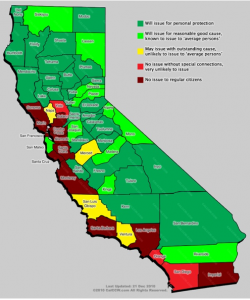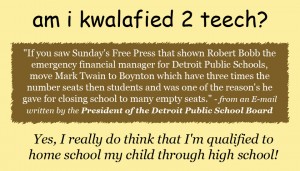Exporting the “old and sick” to another place
But don’t worry – I’m sure it’s for “the common good.”
From The Guardian,
Growing numbers of elderly and sick Germans are being sent overseas for long-term care in retirement and rehabilitation centres because of rising costs and falling standards in Germany.
…
…with increasing numbers of Germans unable to afford the growing costs of retirement homes, and an ageing and shrinking population, the number expected to be sent abroad in the next few years is only likely to rise. Experts describe it as a “time bomb”.
…
Germany has one of the fastest-ageing populations in the world, and the movement here has implications for other western countries, including Britain, particularly amid fears that austerity measures and rising care costs are potentially undermining standards of residential care.
Something to think about as we travers the road towards nationalized healthcare.
###
The Last Radicals
From the National Review,
There is exactly one authentically radical social movement of any real significance in the United States, and it is not Occupy, the Tea Party, or the Ron Paul faction. It is homeschoolers, who, by the simple act of instructing their children at home, pose an intellectual, moral, and political challenge to the government-monopoly schools, which are one of our most fundamental institutions and one of our most dysfunctional.
The author contends that opponents to homeschoolers have three core reasons.
The first is that progressives by their nature do not trust people as individuals and feel that, whether we are applying for a credit card or popping into 7-Eleven for a soft drink, Americans require state-appointed overseers.
…
The second reason for this hostility is that while there is a growing number of secular, progressive, organic-quinoa-consuming homeschool families, there remains a significant conservative and Christian component.
…
A third reason is that the majority of homeschool teachers are mothers. A traditional two-parent family with one full-time breadwinner and one stay-at-home parent is practically built into the model.
Long live independence!
###
Safe, legal and… rare?
From Touchstone Magazine,
The Federal Centers for Disease Control (“CDC”) released a report on the eve of Thanksgiving showing that there was an historic drop of five percent in the abortion rate, the most in a decade. The data is from 2009, the latest year available, and shows that there were only 789,000 abortions. [emphasis in original]
The author states that data from California was not included, so the number of abortions most likely was over 1,000,000.
As for the demographics, this unsettling note,
Approximately 85 percent of women who aborted their babies were unmarried. The majority of abortions are performed by the eighth week of pregnancy. White women had the lowest abortion rate, at about 8.5 per 1,000 women of child-bearing age; the rate for African-American women was about four times that; and the abortion rate for Hispanic women was about 19 per 1,000.
The liberal mantra of being there for the disadvantaged seems to get turned on its head.
And to put some perspective on the killing of 1,000,000 unborn children every year, it’s like having 137 Sandy Hook mass killings EVERY DAY.
###
A belated Christmas Light Painting link for you all
Here’s a great example!

© Michael Ross
###
Doctrine vs. Methodology?
From The Gospel Coalition,
Pastors constantly face temptation to devote more time and energy to methods rather than to doctrine. If that includes you, then give heed to Paul’s instruction in 1 Timothy 4:16: “Keep a close watch on yourself and on the teaching. Persist in this, for by so doing you will save both yourself and your hearers.”
Following the imperative to keep watch on himself, Paul further instructs Timothy to keep watch on his doctrine. My observation, however, is that most ministers aren’t doing this. They don’t talk about doctrine. They don’t read it. If they’re paying close attention to anything, it is their methods and psychology. What’s the result? Less biblical fidelity. Less interest in truth. Less seriousness. Less depth.
Neglecting doctrine results in less capacity to offer a compelling alternative to the thinking of our generation. I often hear the excuse that pastors aren’t studying theology because they’re too busy trying to reach more people. Ironically, this pursuit of identification often comes with a corresponding loss of communication. We put forth all this effort to make people feel comfortable and at home so they don’t feel the difference between life in Christ and life without Christ. Problem is, it is supposed to be different when you come to Christ. That is the point.
[emphasis added]
###
From Radicals to Oddballs
Oh, those homeschoolers,
There are two facets to educating a child well. The first is to recognize that education is not merely the accumulation of facts, but that it has an unavoidably moral aspect. A suitable education must do more, therefore, than simply teach facts, even moral facts. Education must seek to cultivate the moral imagination of the child, for reducing moral education to a list of rules is bound to fail.




